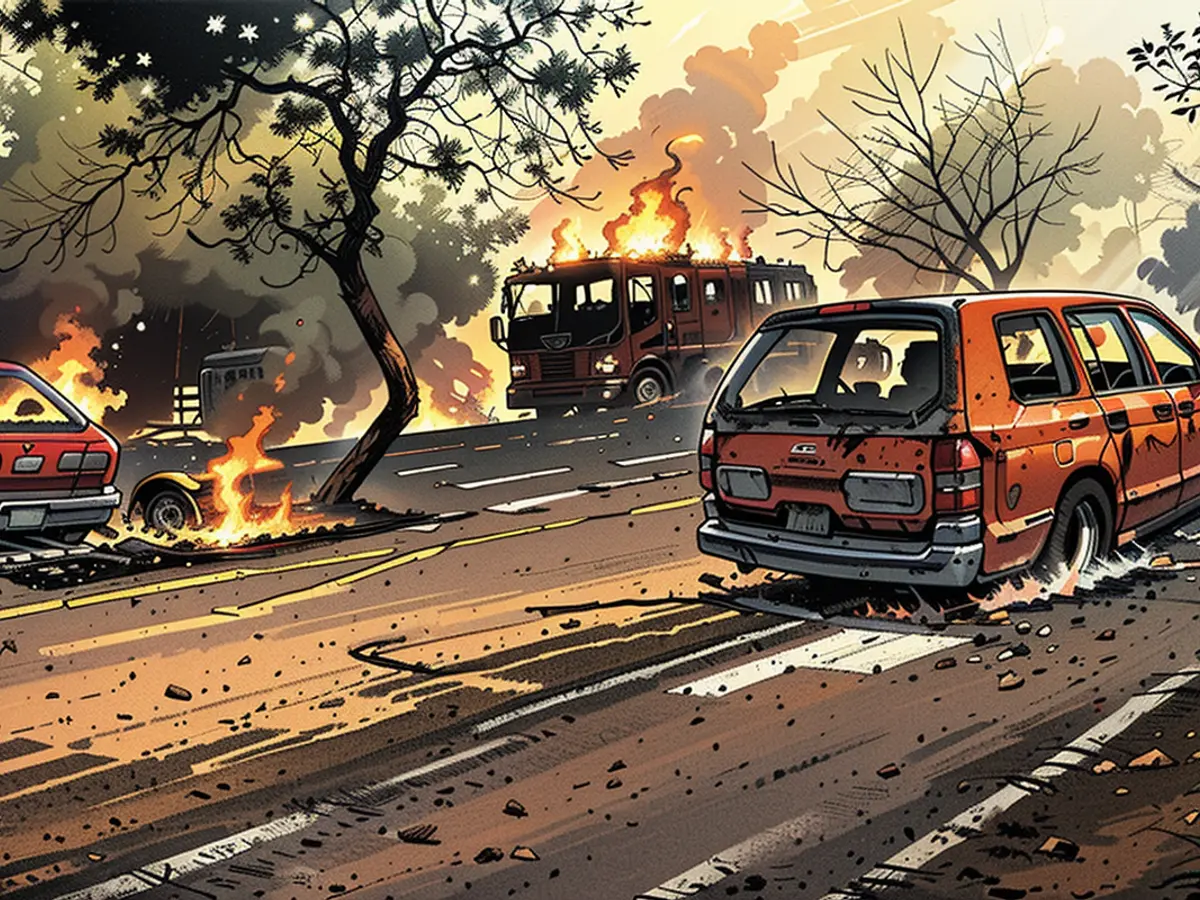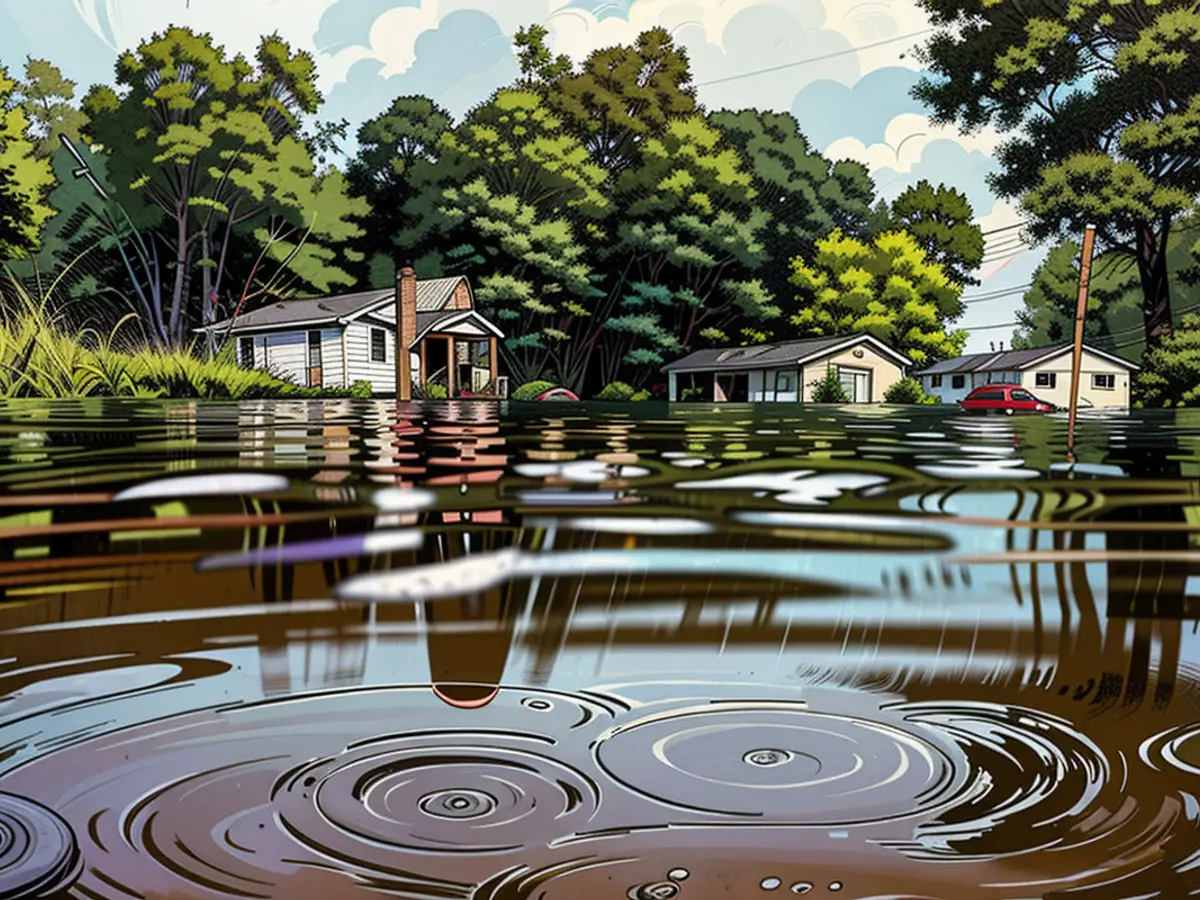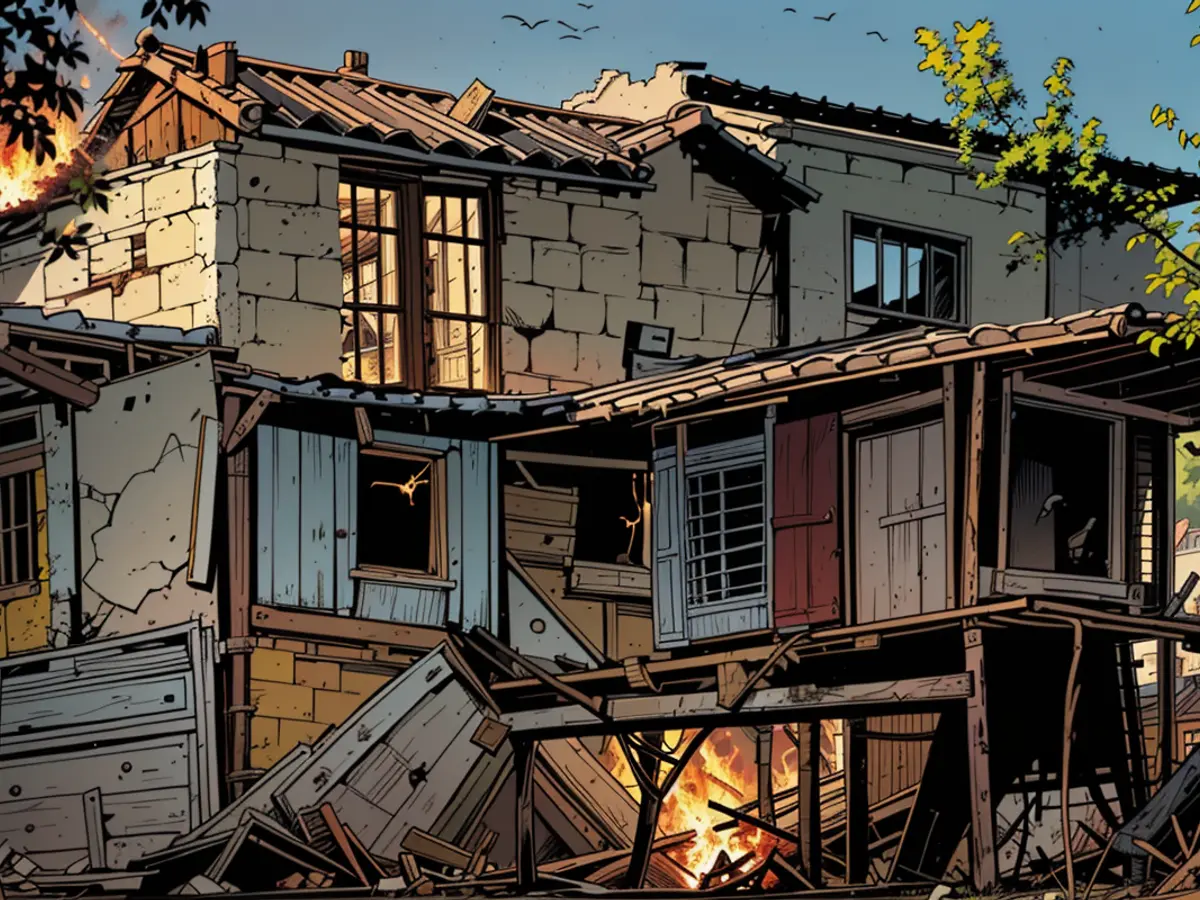Extreme weather is here to stay. How to financially prepare yourself for a disaster
From wildfires and tornadoes to hurricanes and flooding to prolonged heat waves, the potential damage from extreme weather to people, animals and property is high. Especially if you’re a homeowner. And especially if you live in or near high-risk areas.
However, there are steps you can take right now to help speed the process of repair and recovery after a devastating storm, should you ever be directly hit.
Beyond any physical essentials your family and pets might need if you have to evacuate or shelter in place, pull together an administrative emergency kit, so to speak — physical and virtual.
“Things can happen very quickly. You should have that go bag with all your important documents in an easy-to-remember, easy-to-access place,” said Loretta Worters, a spokesperson for the Insurance Information Institute. “You can get an insurance check pretty quickly if you have all the documentation.”

Visually document what you own
Consider, for example, wildfires. At least 38 states are at risk for them, according to the III. A wildfire can reduce your home and all your belongings to ash. “When [your house] burns there’s nothing to show what you have,” Worters said.
That’s why she recommends taking photos or videos of your house and its contents — even just on your cellphone. Store them in the cloud and if possible keep a physical copy with your important papers or on a flash drive.
Also — and dog and cat owners will no doubt be spoiled for choice — include a current photo of your pet, in case you get separated.
If you do ever get hit with a devastating weather event, be sure to take photos soon after impact, so you can better tell your before-and-after story to insurers, said Keith Turi, acting director of response and recovery at the Federal Emergency Management Agency (FEMA).
Make sure you have adequate insurance coverage
Having sufficient insurance is key to preserving your finances and sanity after a disaster. In 2023 alone, there was nearly $80 billion in insured losses due to 89 natural catastrophes in the US like wildfires and flooding, according to the III.
So, periodically check that the policies you do have cover you for the type of extreme weather event that may occur and cover the cost of what you’d want to replace.
For instance, Worters said, stay apprised of rebuilding costs. They may be higher than you think.
Note that if you live in an area prone to floods, standard homeowner policies typically won’t cover flood damage. To learn more about the potential costs of flooding and how to get flood insurance, you can visit floodsmart.gov, Turi recommended.
Lastly, double check that the coverage for your possessions will make you whole — or whole enough. The coverage in most homeowners’ policies for possessions amounts to between 50% and 70% of the value of your home structure, Worters said. So, for every $100,000 in coverage for the structure of your home, you might have $50,000 to $70,000 in coverage for your possessions in the home — from your furniture and household items to your piano.
Keep a physical copy of your insurance coverage and the title and deed to your home in a waterproof or fireproof bag or other container.
Compile your emergency contacts
Make an emergency contact list to keep with your other documents that includes the policy and account numbers for all your insurance policies as well as the insurers’ phone numbers, emails and website addresses — e.g., for health and prescriptions; home, auto and life; plus any pet coverage you may have.
Also include on your list the contact information and account numbers for your bank, investment and retirement accounts.
If you have pets, include your vet’s contact information and that of any boarding facilities you might need to use if ever you have to evacuate. Or, alternatively, the names of pet-friendly places the whole family can stay.
You might also add to your list a FEMA helpline number so you can register for assistance after a disaster: 800-621-3362.
Other essentials to have at the ready
Other key documents that III recommends you have at the ready to throw into your go bag are your birth and marriage certificates, passports, a driver’s license (unless it’s in your wallet on your person), your most recent tax return, any hard-copy stock certificates and your will.
Since you may have to pay initially for hotel or motel rooms and meals immediately after a disaster, the national public service campaign Ready recommends having cash or traveler’s checks available in your emergency kit. Another option if you have more than one credit card is to use your second or third card sparingly, so that you have enough under that card’s credit limit to charge such immediate expenses.
In the event of an evacuation or sheltering in place due to a devastating weather event, having an administrative emergency kit with important documents is crucial. This kit should include documents such as insurance policies, photos or videos of your house and its contents, and a current photo of your pet.
It's essential to ensure you have adequate insurance coverage, especially if you live in areas prone to natural disasters like floods. Standard homeowner policies often do not cover flood damage, so it's crucial to consider getting flood insurance. The website floodsmart.gov provides information on the potential costs of flooding and how to obtain this coverage.








